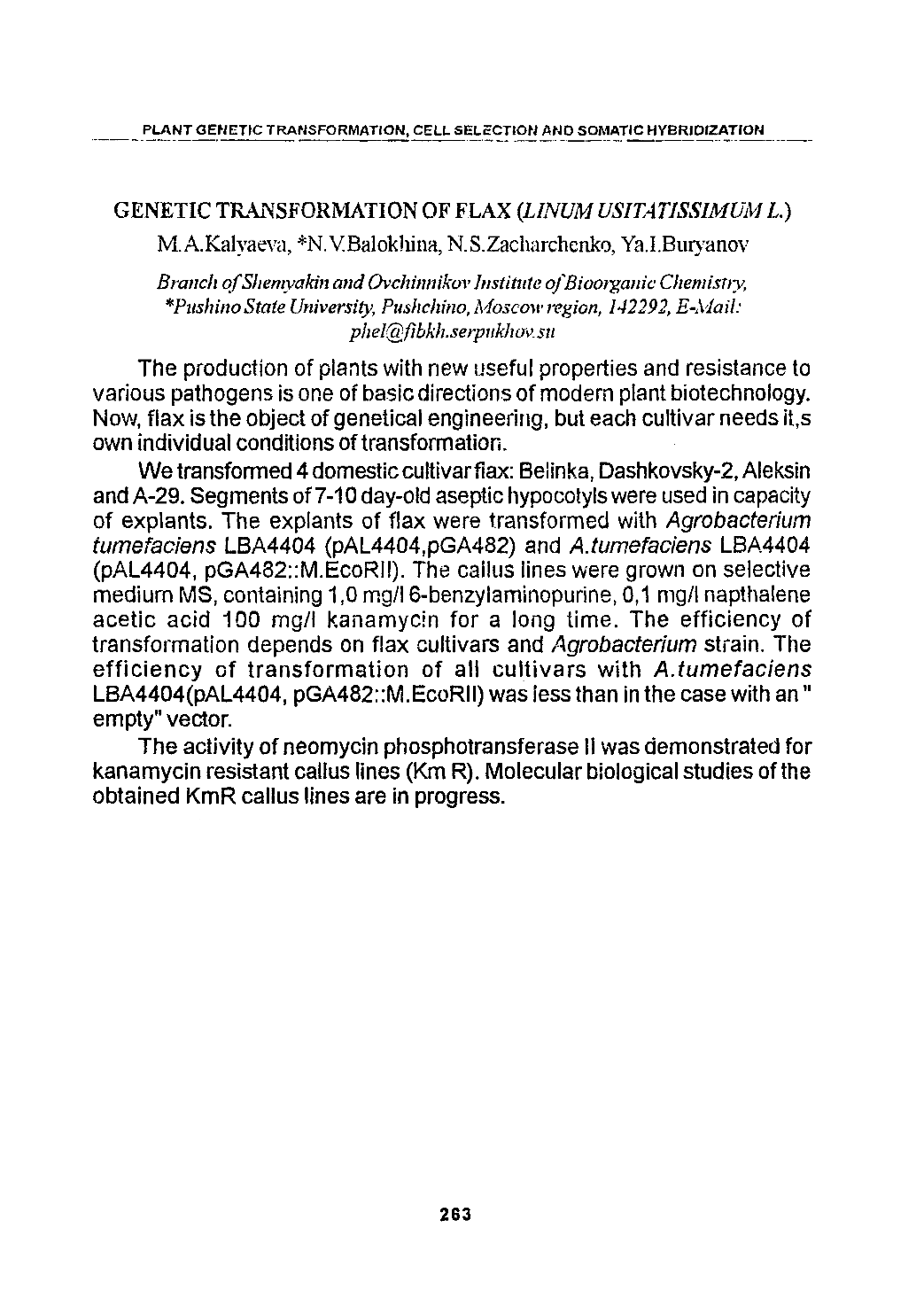

PLANT GENETIC TRANSFORMATION, CELL SELECTION AND SOMATIC
HYBRIDIZ ION
GENETIC TRANSFORMATION OF FLAX
(LINUM USITATISSIMUM L.)
M.A.Kalyaeva, *N.V.Balokhina, N.S.Zacharchenko, Ya.I.Buryanov
Branch o fShemyakin and Ovchinnikov Institute ofBioorganic Chemistry,
*Pushino Stale University, Pushchino, Moscow region, 142292, E-Mail:
phel@fibkh.serpukhov.suThe production of plants with new useful properties and resistance to
various pathogens is one of basic directions of modern plant biotechnology.
Now, flax is the object of genetical engineering, but each cultivar needs it,s
own individual conditions of transformation.
We transformed 4 domestic cultivarfiax: Belinka, Dashkovsky-2, Aleksin
and A-29. Segments of 7-10 day-old aseptic hypocotyls were used in capacity
of explants. The explants of flax were transformed with
Agrobacterium
tum efaciens
LBA4404 (pAL4404,pGA482) and
A.tumefaciens
LBA4404
(pAL4404, pGA482::M.EcoRII). The callus lines were grown on selective
medium MS, containing 1,0 mg/l 6-benzylaminopurine, 0,1 mg/l napthalene
a cetic acid 100 mg/l kanamycin fo r a long time. The e fficiency of
transformation depends on flax cultivars and
Agrobacterium
strain. The
e ffic ie n c y o f tra n s fo rm a tio n o f all c u ltiv a rs w ith
A .tum e fa c ie n s
LBA4404(pAL4404, pGA482::M.EcoRII) was less than in the case with an "
empty" vector.
The activity of neomycin phosphotransferase II was demonstrated for
kanamycin resistant callus lines (Km R). Molecular biological studies of the
obtained KmR callus lines are in progress.
2 6 3
Научная электронная библиотека ЦНСХБ









